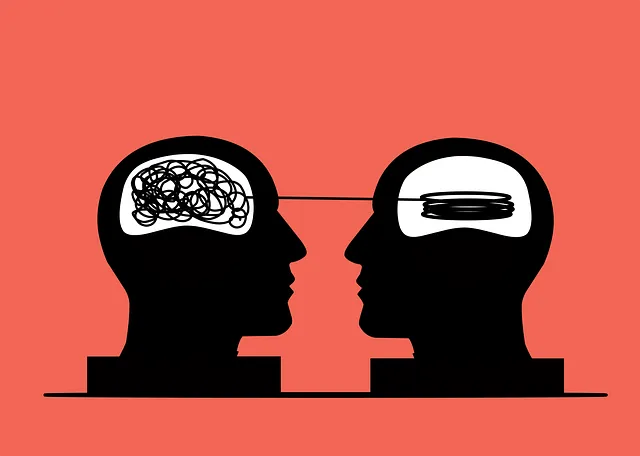In a fast-paced world, self-assessment tools are crucial for Denver residents seeking mental wellness, guiding them towards areas of improvement and diversifying access to services. An ideal tool should offer user comfort, precise evaluation through validated scales, and interactive self-reflection exercises like Mind Over Matter principles. The Kaiser-Denver Model rigorously assesses therapist expertise and client outcomes, ensuring high-quality care and advocating for policy changes that enhance mental health service accessibility. For those asking "Denver does Kaiser have good therapists?", this model provides a framework to identify quality therapists within the Kaiser system.
Mental wellness self-assessment tools play a pivotal role in individual understanding and navigating their psychological well-being. As awareness of mental health grows, so does the demand for accessible resources. This article explores the development of such tools, focusing on the need for accurate evaluation and the key components that make an assessment effective. We delve into established models like the Kaiser-Denver Model, which offers a structured approach to evaluating therapists and support services, ensuring individuals can access quality care. Understanding these elements is crucial in determining whether Denver’s mental health services meet the needs of their diverse population.
- Understanding the Need for Self-Assessment Tools in Mental Health
- Key Components of an Effective Mental Wellness Self-Assessment Tool
- Evaluating Therapists and Support Services: The Kaiser-Denver Model
Understanding the Need for Self-Assessment Tools in Mental Health

In today’s fast-paced world, maintaining mental wellness is a significant challenge for many individuals. This need is further underscored by questions like “Does Denver have good therapists?” or “Does Kaiser have satisfactory mental health services?”, with people often seeking accessible and affordable options. Self-assessment tools play a crucial role in addressing these concerns. They provide an initial evaluation of one’s mental state, offering insights into areas needing attention, such as self-esteem improvement, positive thinking, and mindfulness meditation practices.
By integrating these tools, individuals can proactively manage their mental health. Whether through digital platforms or traditional questionnaires, self-assessments empower people to take charge of their well-being. This is especially important in diversifying access to mental healthcare services, ensuring that those who might not typically seek professional help due to cost, availability, or stigma can receive guidance and support early on.
Key Components of an Effective Mental Wellness Self-Assessment Tool

An effective mental wellness self-assessment tool should incorporate several key components to ensure comprehensive and accurate evaluations. Firstly, it must be designed with a user-friendly interface, considering the sensitivity of the topic, to create a comfortable environment for individuals assessing their mental health. The tool should then employ validated assessment scales and questionnaires tailored to specific mental health dimensions, such as anxiety, depression, stress, and emotional regulation, allowing for precise measurements.
Additionally, incorporating interactive features that guide users through self-reflection exercises can enhance the tool’s effectiveness. These exercises should be based on evidence-driven practices like Mind Over Matter principles, encouraging individuals to develop coping strategies and foster emotional resilience. Notably, for Denver residents considering therapists at Kaiser or elsewhere, such tools can serve as valuable resources for personal growth and informed decisions regarding professional mental health support.
Evaluating Therapists and Support Services: The Kaiser-Denver Model

The Kaiser-Denver Model offers a robust framework for evaluating therapists and support services within mental wellness self-assessment tools. This model prioritizes thorough assessment, focusing on both the therapist’s expertise and their ability to foster effective client outcomes. By examining factors like clinical skills, cultural competency, and ethical practices, the Denver Model ensures that therapists meet high standards of care. This approach is particularly beneficial in gauging the quality of services provided by various organizations, including those specializing in Stress Management Workshops and Conflict Resolution Techniques.
Beyond individual therapist evaluation, the Kaiser-Denver Model can inform Mental Health Policy Analysis and Advocacy efforts. By systematically assessing service delivery, it becomes possible to identify areas for improvement and advocate for policy changes that enhance access to quality mental health care. This comprehensive perspective underscores Denver’s significance in shaping effective Mental Wellness self-assessment tools, ensuring that both therapists and support services adhere to best practices.
Mental wellness self-assessment tools play a crucial role in empowering individuals to take charge of their mental health. By understanding key components like accessibility, validity, and reliability, we can develop effective tools that help users accurately assess their well-being. The Kaiser-Denver Model serves as an excellent example, evaluating therapists and support services with a proven track record of success. When it comes to Denver’s therapists, the city has many good options, thanks in part to the model’s focus on quality care. By adopting evidence-based approaches, we can ensure that self-assessment tools not only guide individuals toward appropriate resources but also foster continuous mental wellness improvement.




